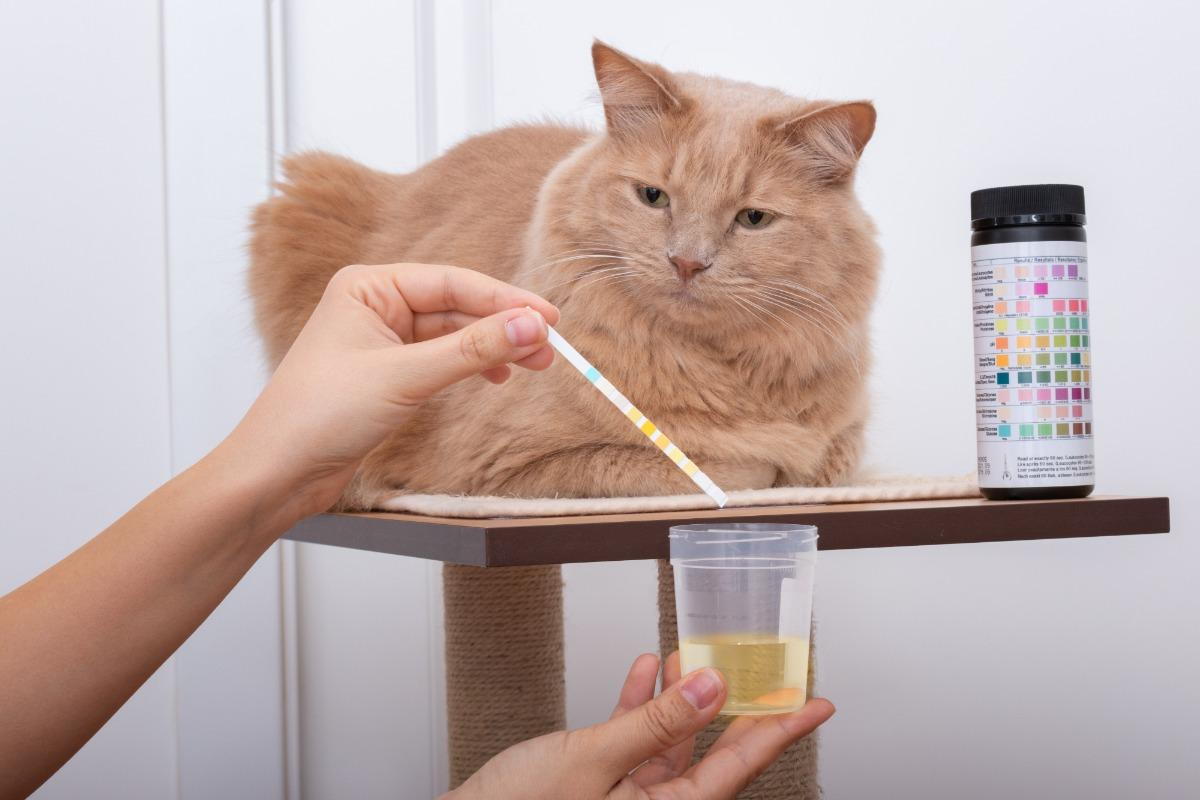
- posted: Jun. 25, 2024
Is your cat exhibiting difficulty using the litter box, or urinating in unusual places? These could be signs of Feline Lower Urinary Tract Disease (FLUTD). FLUTD isn't a single condition, but an umbrella term encompassing various issues affecting the bladder and urethra in cats.
Understanding FLUTD
FLUTD is most prevalent in middle-aged indoor cats, but can occur at any age. At Morgan Pet Clinic in Omaha, our experienced veterinarians regularly diagnose and treat FLUTD. We prioritize pinpointing the specific cause to administer effective treatment and alleviate your cat's discomfort. This guide explores FLUTD symptoms and its various forms.
Signs of FLUTD in Cats
While cats can be adept at masking illness, FLUTD symptoms are often hard to miss. These include:
• Straining in the litter box
• Crying, growling, or howling while using the litter box
• Blood in the urine
• Urinating outside the litter box
• Urinating in small amounts frequently
• Licking the genitals excessively
Diagnosing FLUTD
Diagnosing the exact cause of FLUTD can sometimes be a challenge. Your veterinarian will inquire about your cat's diet and environment, followed by a thorough physical examination. A urinalysis will assess for abnormal pH levels, the presence of crystals or stones, infections, and other abnormalities. X-rays or an ultrasound may also be recommended.
Treatment Options for FLUTD
The treatment for FLUTD depends on the specific underlying urinary tract issue. Here's a breakdown of common causes and treatment approaches:
• Stones/Crystals: Crystals or stones forming in the bladder or urethra can cause blockages and irritation. Treatment may involve:
• A special diet formulated to dissolve the crystals
• Anti-inflammatory medication to manage discomfort
• Manual removal of crystals by your veterinarian
• Urinary Tract Infections: Bacterial or fungal infections can cause UTIs. Treatment typically involves antibiotics and fluid therapy to promote hydration.
• Urethral Obstruction: This serious condition occurs when mucus or stones block the urethra, preventing urination. It can be life-threatening if not treated promptly (within 24-48 hours). A veterinarian will attempt to remove the blockage using a catheter to flush out the urethra with fluids.
Contact A Veterinarian Near You
If you live in the Omaha area and suspect your cat may have FLUTD, contact Morgan Pet Clinic at (402) 895-1001. Our experienced staff is here to assist you and your feline companion.
